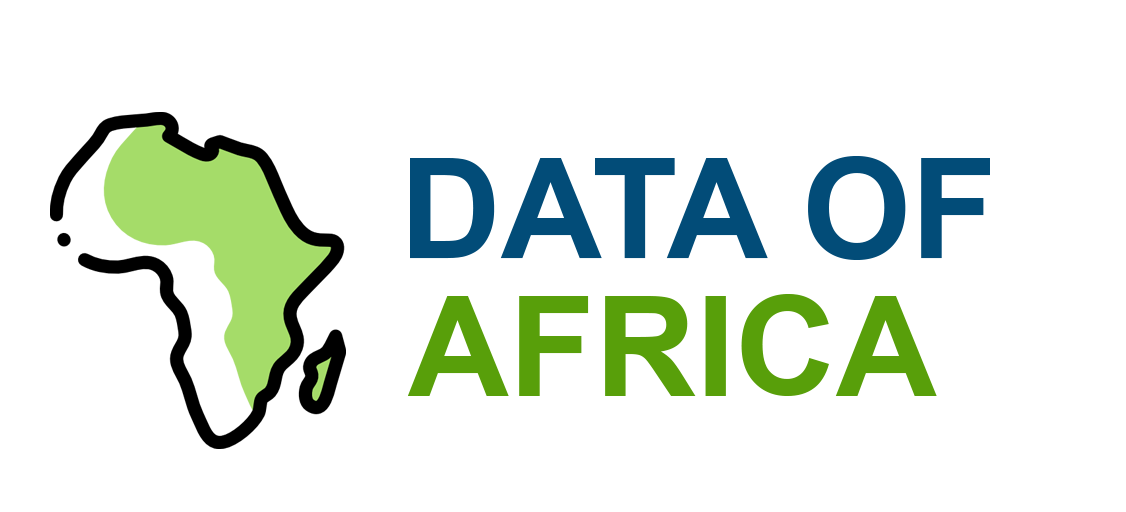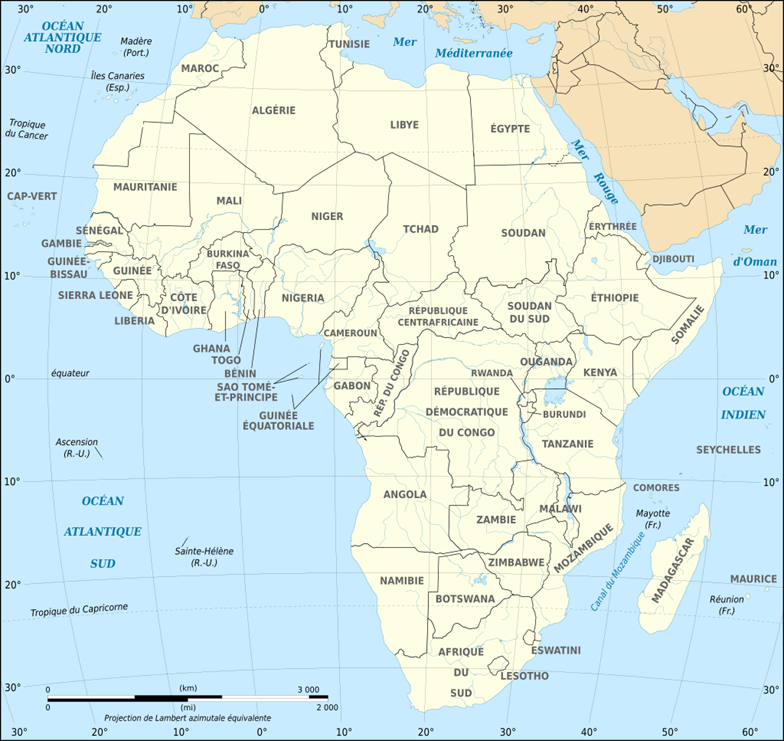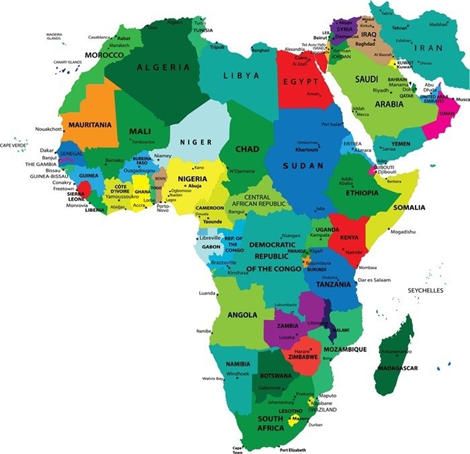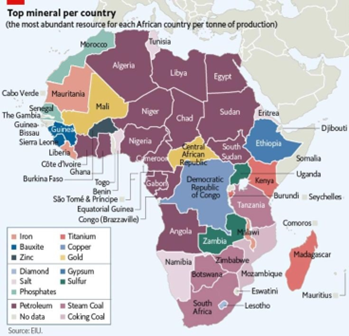The post WWII newly independent African states had urgent tasks to accomplish. Not wanting to embark on an adventurous recomposition, they decided to preserve the colonial borders that the newly created OAU decreed inviolable in 1963. They did the same with the language of the former colonial power, a common idiom for citizens that spoke many dialects. The situation differed, however, in North Africa, where Arabic took precedence, and in East Africa, where Swahili prevailed.
Map of African states.
Borders ignore the ethnic and geographical realities of the continent. The national unity of the new states could therefore not be based on an ethnocultural basis or a common history, it was rather based on political and economic considerations, constituting a common project. Many of these countries took the path of a single party, or even dictatorship, with the heroes of independence transforming themselves into despots such as Sékou Touré, Léopold Sédar Senghor, Léon Mba, Fulbert Youlou, sometimes following putschs like Gnassingbé Eyadema and Mobutu Sese Seko for example. Ideology thus served as a vector. Some adopted a “socialist” or “Marxist-Leninist” path, like Algeria, Tanzania, Senegal, Guinea, Mozambique. Elsewhere, it is religion which serves as the basis for national unity as in the Islamic Republic of Mauritania.
Politically, the Pan-African ideology, which inspired the liberation movements as a unifying principle of struggle against colonial powers, declined after independence despite the creation of the OAU in 1963. Furthermore, as early as 1955, Africa was represented at the Bandung Conference, which founded the Non-Aligned Movement and was the basis for the birth of the concept of the Third World. The African “identity imagination” is thus constructed in a composite manner, between Pan-Africanism and the desire to escape the logic of the Cold War blocs (non-alignment).
The new states were not, however, freed from the economic structures inherited from colonization and the links with the metropolises were not broken. Many were signatories to political, economic and military agreements, sometimes secret, which linked them to the former metropolises and the majority of the former colonies of the United Kingdom joined the Commonwealth. The former metropolises thus intended to maintain a privileged position in exchange for technical assistance and development aid. In fact, the immediate post-independence period was a period known as “neocolonialism”, a key concept in North-South relations at that time: the Europeans, but also the United States, the Soviet Union, Cuba, China, etc., protagonists of the Cold War, interfered extensively in the politics and economy of the continent.
Between 1960 and 1980, the GDP of African countries tripled without the living conditions of Africans improving significantly. The management of the economy, whether based on a liberal or socialist ideology, did not allow the productive fabric of the new States to be “decolonized.” Subsistence agriculture continued to coexist with cash crop agriculture intended for export, and raw materials were massively exported, without producing local added value. The outlets were in developed countries which, in the context of the “Thirty Glorious Years”, needed the continent’s resources to fuel their growth. The continent went into massive debt during the 1970s.; the amount of debt reached almost a quarter of African GDP in 1980.
But, while export revenues had been increasing since independence, between 1979 and 1982 the prices of the main African exports fell, in real terms, to their lowest level since 1950. At the same time, interest rates increased. Export revenues fell, interest rates climbed; thus caught in a scissors effect, Africa entered a spiral of crisis. Investment possibilities decreased drastically, budget deficits widened and debt became a financial burden. In 1990, it represented 106.1% of GNP in sub-Saharan Africa and from 52% (Algeria) to 126% (Egypt) in North Africa. International donors (mainly the IMF and the World Bank) grant loans by making them conditional on the implementation of structural adjustment policies aimed at reforming the entire economy of countries or, at the very least, entire sectors (energy, education), which profoundly changes their functioning. Inspired by liberal economic thinking, structural adjustment consists in particular of privatizing, most often for the benefit of foreign companies, entire sections of the economy, removing barriers to trade, and reducing the weight of the State, including aid to the most disadvantaged. In 1992, almost all countries on the continent were affected by structural adjustment. By liberal standards, the economy will be cleaned up, but it will take more than twenty years and the social impact is “terrifying”: unemployment, the undermining of health and education systems, increasing inequalities, etc. Politically, countries are supported even when their democratic foundations are not in place, de facto strengthening authoritarian regimes or imperfect democracies.
In the early 1990s, following the fall of the Berlin Wall, the continent’s democratic aspirations grew. This was the period of the La Baule speech, the “national conferences” in French-speaking Africa – which established, in particular, multiparty politics -, the end of apartheid, and the independence of Namibia and Eritrea. However, democracy did not progress massively in the context of ethnic and regionalist tensions and armed conflicts.
From an economic point of view, taking advantage of a turnaround in the cycle, the debt of sub-Saharan African countries has halved in fifteen years and returned to a more sustainable level, falling from 85% in 2000 to 40% of GDP at the end of the 2010s. The continent’s economic growth has been sustained since the beginning of the 21st century, at around 5% per year for real production and 4% for GDP.
For more information :
- https://fr.wikipedia.org/wiki/Portail:Afrique
- https://en.wikipedia.org/wiki/Africa
- https://africacenter.org/
- https://journals.openedition.org/etudesafricaines/
- https://etudes-africaines.cnrs.fr/
- https://journals.openedition.org/etudesafricaines/
- https://www.afdb.org/fr/documents-publications/economic-perspectives-en-afrique-2024



